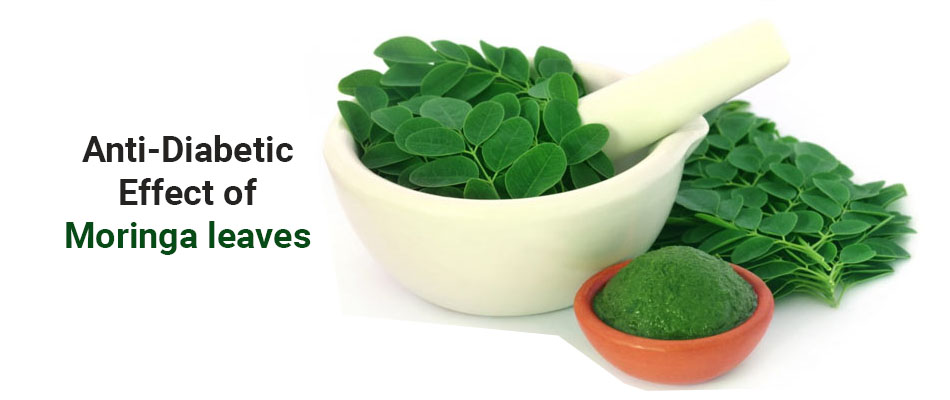Realizing the Potential of Moringa Leaves for Managing Diabetes
Moringa Oleifera nicknamed the “Miracle Tree,” is quickly gaining recognition in the alternative medicine and holistic health realm for its numerous nutritional and medicinal advantages. It has long been praised throughout parts of Africa and India for its various wellness-enhancing traits. An especially promising area where Moringa may shine is diabetes management—a prevalent metabolic condition that impacts millions globally on a chronic basis.
Diabetes is a rapidly spreading worldwide issue that requires in-depth comprehension.
Diabetes mellitus, also referred to as diabetes, is a lasting medical condition that displays increased levels of blood sugar over an extended period. This metabolic ailment stems from either the pancreas not generating enough insulin or the body’s incapacity in making use of produced insulin in a valuable manner. When left unchecked, this disease may cause severe ramifications like cardiovascular problems, neuropathy (nerve damage), nephropathy (kidney injury), and visual impairment.
As the worldwide incidence of diabetes continues to rise at a concerning pace, healthcare professionals and researchers are consistently exploring viable methods for preventing and handling the disease. Although conventional remedies including medication and insulin therapy persist as primary approaches, the incorporation of adjunctive treatments like Moringa leaves is gaining momentum.
Moringa Leaves: The Nutritional Powerhouse
The exceptional nutritional profile of Moringa Oleifera renders it highly esteemed, especially for its leaves which are the most frequently employed component. Its leaves contain a rich combination of vitamins, minerals, antioxidants, and bioactive compounds that make them an advantageous inclusion in one’s diet.
Moringa leaves are known to contain several significant nutrients including:
Moringa leaves contain copious amounts of vitamins A, C, and E that exhibit robust antioxidant capabilities while also performing crucial functions in cellular health and immune system functioning.
Moringa leaves provide vital minerals, including calcium, magnesium, potassium, and iron. These essential elements play a critical role in promoting healthy bones as well as regulating blood pressure levels to promote well-being.
Moringa leaves offer a wide range of antioxidants like flavonoids, polyphenols, and carotenoids that effectively alleviate oxidative stress and inflammation in the body.
Moringa leaves have been researched for their possible anti-diabetic benefits due to the presence of bioactive compounds like quercetin, chlorogenic acid, and beta-sitosterol.
Exploring the Evidence of Moringa Leaves’ Effect on Diabetes
Numerous research studies have explored the potential impact of Moringa leaves on different aspects related to managing diabetes, such as regulating blood sugar levels, enhancing insulin sensitivity and addressing complications associated with this ailment. Although ongoing work is being conducted in this area of study, initial observations indicate that incorporating Moringa leaves into treatment regimens could provide encouraging advantages for patients suffering from diabetes.
Animal studies indicate that Moringa leaf extract could aid in regulating blood sugar levels by improving glucose uptake and increasing insulin secretion.
Research suggests that Moringa leaves contain specific bioactive compounds that could enhance insulin sensitivity, consequently aiding the body in better-utilizing glucose.
The antioxidant qualities of Moringa leaves can assist in reducing oxidative stress and inflammation that contribute to the advancement of problems related to diabetes. This gives protection against further complications.
Although these results are promising, further clinical trials involving human subjects must be conducted to confirm that Moringa leaves can safely and effectively function as a therapeutic add-on for managing diabetes.

Including Moringa Leaves in Your Eating Habits
There are several ways to include Moringa leaves in your diet, such as:
Revitalizing Greens: For a healthful kick, add newly picked Moringa leaves after washing to your favorite salads, soups, and smoothies, or try stir-frying them.
Moringa Leaves as Powder: Moringa leaves, when dried and powdered finely, offer a nutrient-dense seasoning or herbal supplement.
Moringa leaf tea is a rejuvenating drink that can be savored anytime during the day, prepared by infusing dried moringa leaves in hot water.
Although Moringa leaves exhibit potential as a supplementary remedy for managing diabetes, it is crucial to stress that they must not substitute traditional medicinal remedies or nutritional advice provided by healthcare experts. People with diabetes ought to consult their medical practitioner prior to integrating Moringa leaves into their routine diet; particularly if they are currently using medications or suffer from any preexisting health conditions.
As an ongoing exploration of Moringa leaves’ therapeutic possibilities persists, utilizing the plant’s exceptional nutritional and medicinal advantages may present fresh opportunities for enhancing general health and wellness, especially when it comes to diabetes control. Through additional scrutiny and confirmation in clinical settings, Moringa Leaves has the potential to become a beneficial asset in combating diabetes by empowering individuals with proactive solutions for improved health and vitality.

